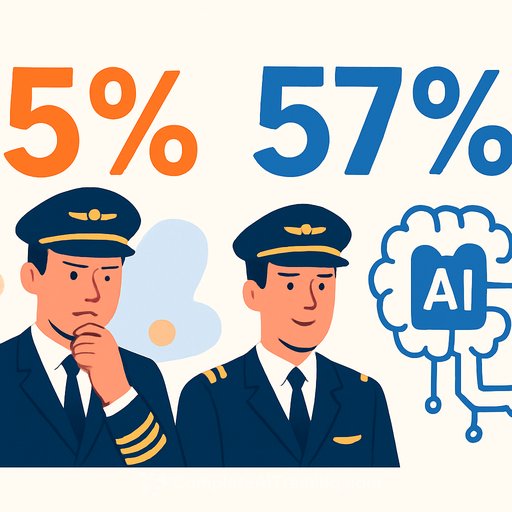Enterprise Tech Executives Growing Wary of AI Strategy Effectiveness
Despite ongoing increases in enterprise AI investment, confidence among top technology leaders in the strategies driving this change is declining. New research surveying 500 global Chief Technology Officers (CTOs) within a broader group of 2,000 executives reveals a drop in C-suite confidence in AI strategy—from 69% in 2024 down to 58% in 2025.
The steepest confidence declines are seen among CTOs and CEOs, falling by 20 and 33 percentage points respectively. This signals growing uncertainty at the highest levels about how AI initiatives are managed and scaled.
Leadership and Trust Gaps in AI Fluency
CTOs highlight a critical leadership gap: only 55% believe their executive teams fully understand the risks and opportunities AI brings. Among the wider employee base, this drops to 46%, pointing to a broader trust gap that risks undermining AI adoption and long-term success.
Human Skills Are Essential to Making AI Work
Technical expertise remains crucial, with 51% of CTOs identifying specialist IT skills as the largest capability gap. However, soft skills are equally important for interpreting AI results and driving innovation. These include:
- Creativity (44%)
- Leadership (39%)
- Critical thinking (36%)
Developing these skills helps organizations adapt AI systems to varied business needs and encourages smarter decision-making.
Training Investment Lacks Impact and Measurement
While companies are investing more in employee learning and development, many still lack the infrastructure to target training effectively. Only 20% of CTOs report using data tools to assess workforce skills or track learning progress.
Many organizations rely heavily on external hiring to close AI capability gaps, but this may limit scaling potential. External hires often miss out on deep organizational knowledge and cross-functional relationships critical for embedding AI at scale.
CTOs Take on Expanded Roles in AI Transformation
As AI moves beyond experimentation toward full integration, CTOs are emerging as key transformation leaders. Their roles now include:
- Crafting cross-functional AI strategy
- Enabling executive teams to increase AI fluency
- Designing systems that balance technical and human capabilities
By aligning skills development with enterprise architecture and fostering leadership fluency, CTOs can close the gap between AI ambition and real-world execution. This approach builds organizations that are prepared for AI challenges and confident in their AI-driven futures.
For executives looking to strengthen AI skills within their teams, exploring focused learning pathways can be valuable. Resources such as Complete AI Training’s courses by job role offer practical options to address skill gaps and boost organizational readiness.
The full What CTOs Think report is available on the Akkodis website for further insights.
Your membership also unlocks:






